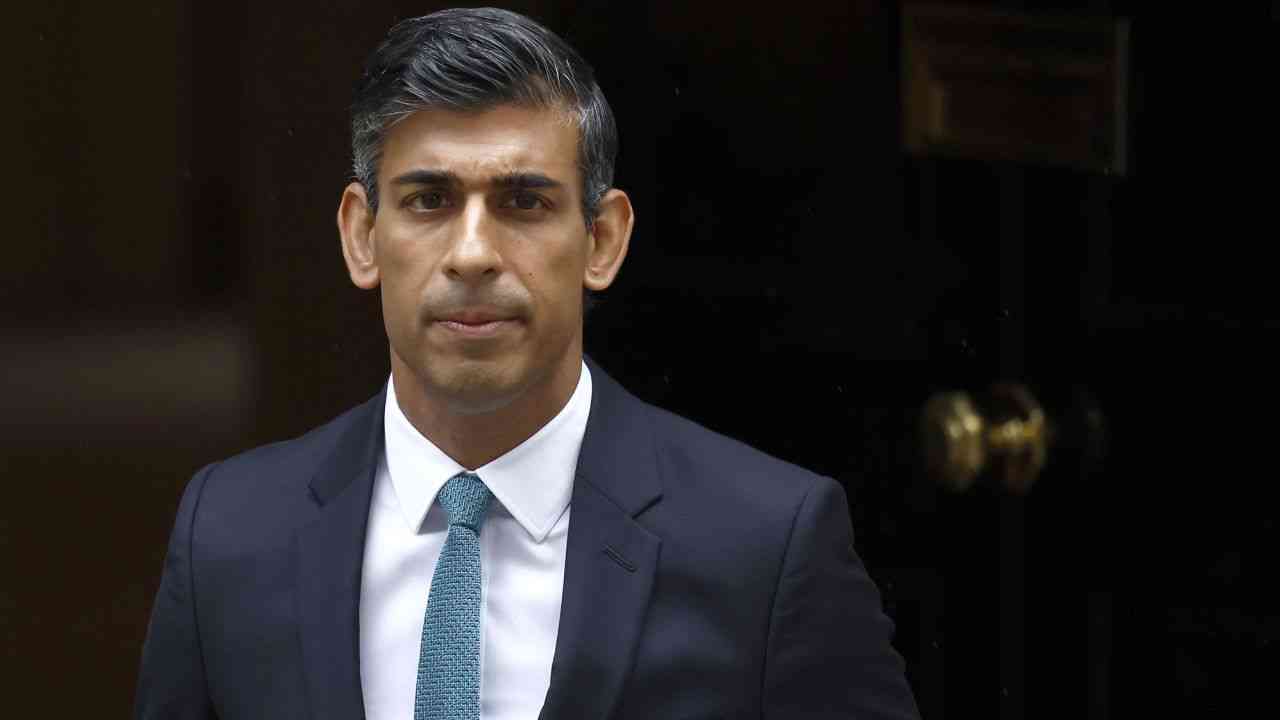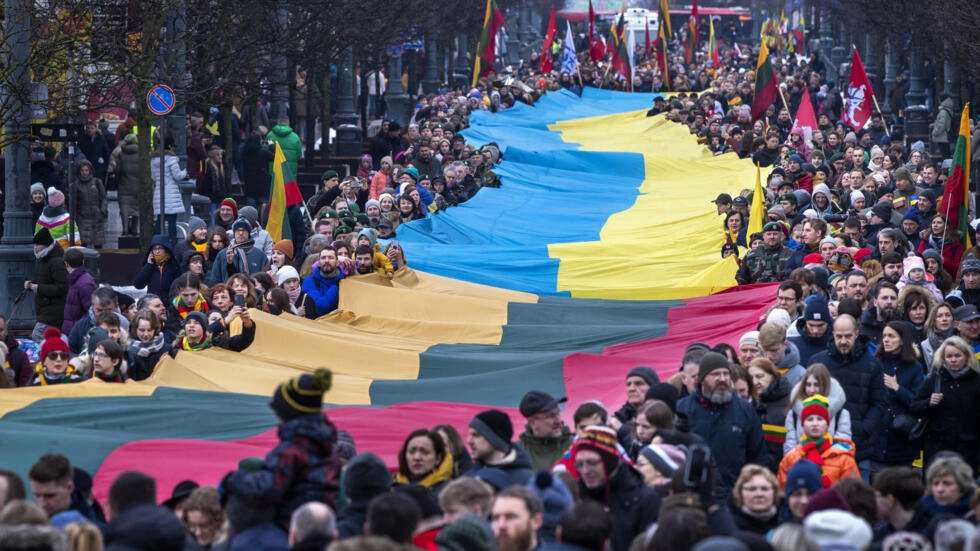Russia plans to station tactical nuclear weapons in neighboring Belarus, President Vladimir Putin said Saturday.
Moscow will complete the construction of a special storage facility for tactical nuclear weapons in Belarus by the beginning of July, Putin told state broadcaster Russia 1.
He said Moscow had already transferred an Iskander short-range missile system, a device which can be fitted with nuclear or conventional warheads, to Belarus.
During the interview, Putin said Russia had helped Belarus convert 10 aircraft to make them capable of carrying tactical nuclear warheads and would start training pilots to fly the re-configured planes early next month.
Russian President Vladimir Putin attends a joint statement with Chinese President Xi Jinping following their talks at the Kremlin in Moscow, Russia March 21, 2023. Sputnik/Mikhail Tereshchenko/Pool via REUTERS ATTENTION EDITORS – THIS IMAGE WAS PROVIDED BY A THIRD PARTY.
UK accuses Russia of disinformation over depleted uranium
Belarus, which is west of Russia on Ukraine’s long northern border, is among Moscow’s closest allies. It helped Russia launch its initial invasion of Ukraine in February 2022, allowing the Kremlin’s troops to enter the country from the north.
There have been fears throughout the conflict that Belarus will again be used as a launching ground for an offensive, or that Minsk’s own troops will join the conflict.
During that conference, and addressing the Russia leader, Lukashenko also said, “Today we’ve put the S-400 [air defense] system that you transferred to Belarus into a state of combat-readiness, and, most importantly, the Iskander system, which you have also handed over to us, after promising it half a year ago.”
Since invading Ukraine more than a year ago, Putin has used escalating rhetoric on a number of occasions, warning of the “increasing” threat of nuclear war and suggesting Moscow may abandon its “no first use” policy.
In his interview Saturday, Putin said Moscow would retain control over any tactical nuclear weapons it stationed in Belarus.
He likened the move to Washington’s practice of stationing nuclear weapons in Europe to keep host countries, like Germany, from breaking their commitments as non-nuclear powers.
“We are not going to hand over control of nuclear weapons. The US doesn’t hand it over to its allies. We’re basically doing the same thing (US leaders) have been doing for a decade,” Putin said.
Although there is no guarantee that Putin will follow through with his plan to station the weapons in Belarus, any nuclear signaling by him will cause concern in the West.
“We have not seen any reason to adjust our own strategic nuclear posture nor any indications Russia is preparing to use a nuclear weapon,” State Department spokesperson Vedant Patel said in a statement to CNN.
Russia and Belarus had discussed this movement of weapons for some time, having made multiple statements throughout the past year, another State Department spokesperson said.
Previously, Washington has made clear to Putin there will be consequences to any use of nuclear weapons in Ukraine, even low-yield tactical devices, but has deliberately stopped short of spelling out exactly what they would be.
Speaking in October, US President Joe Biden told CNN’s Jake Tapper, “It would be irresponsible for me to talk about what we would or wouldn’t do,” in response to nuclear use by Russia.
But Biden hinted at the possibility of a rapid escalation in events.
“The mistakes get made, the miscalculation could occur, no one could be sure what would happen and it could end in Armageddon,” he said.



